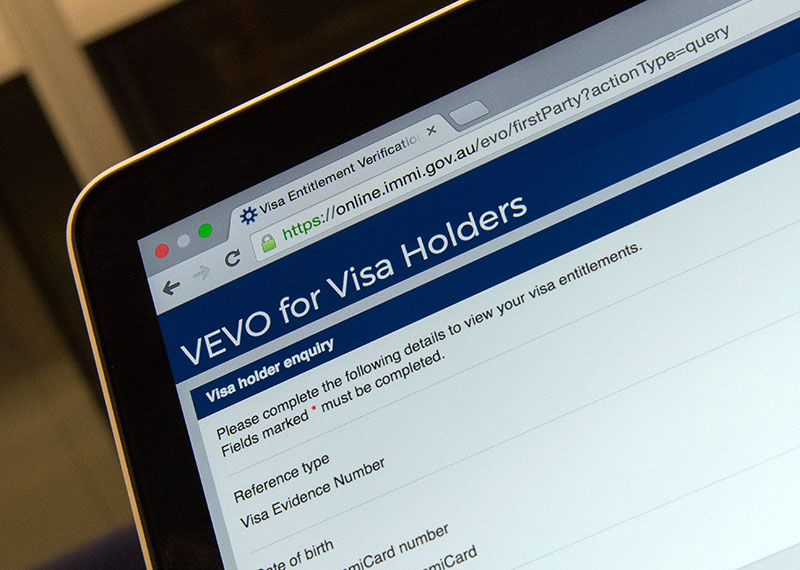Browse our range of reports and publications including performance and financial statement audit reports, assurance review reports, information reports and annual reports.
The Auditor-General (A/g) responded on 23 September 2015 to correspondence from Senator Nick Xenophon on 8 September 2015 regarding florist at Parliament House, DPS and LGW Design.
Please direct enquiries relating to requests for audit through our contact page.
The objective of the audit was to assess the effectiveness of the ATO's management of its interpretative assistance activities for SMSFs.
The objective of the audit was to assess how effectively DHS (including CSA), FaHCSIA and Centrelink managed the implementation of stage one of the CSSR and the Improving Compliance program.
The audit reviewed the Defence Materiel Organisation's management of the $3.43 billion Wedgetail Airborne Early Warning and Control (AEW&C) project. The Wedgetail project is to provide the Australian Defence Force with an AEW&C capability based on four Boeing 737 AEW&C aircraft and associated supplies and logistic support. At the time of the audit the AEW&C systems were still in their early development phase, and by November 2003, Defence had spent $1.107 billion on the project.
The objective of the audit was to assess the effectiveness of Australian Financial Security Authority’s (AFSA) management of conflicts of interest.
Please direct enquiries through our contact page.
The objective of the audit was to assess the effectiveness of the Department of Immigration and Border Protection’s (DIBP) management of compliance with visa conditions. To form a conclusion against this objective, the ANAO assessed whether DIBP:
- effectively manages risk and intelligence related to visa holders’ non-compliance with their visa conditions;
- promotes voluntary compliance through targeted campaigns and services that are appropriate and accessible to the community;
- conducts onshore compliance activities that are effective and appropriately targeted; and
- has effective administrative arrangements to support visa holders’ compliance with their visa conditions.
Please direct enquiries relating to reports through our contact page.
The objective of this audit was to examine the effectiveness of the design and implementation of the Department of the Prime Minister and Cabinet’s (PM&C’s) evaluation framework for the Indigenous Advancement Strategy (IAS), in achieving its purpose to ensure that evaluation is high quality, ethical, inclusive and focused on improving outcomes for Indigenous Australians.
Please direct enquiries through our contact page.
The objective of the audit was to assess the effectiveness of the Department of Education, Employment and Workplace Relations’ (DEEWR) role in the delivery of the Children and Family Centre (CFC) component of the National Partnership Agreement on Indigenous Early Childhood Development (IECD NP).
Please direct enquiries relating to reports through our contact page.
To examine the effectiveness of the Department of Health and Ageing’s administration of the Access to Allied Psychological Services Program.
The Auditor-General (A/g) responded on 23 September 2015 to correspondence from Ms Julie Collins MP on 1 September 2015 regarding parliamentary entitlements paid to Liberal MPs and Senators.
Please direct enquiries relating to requests for audit through our contact page.
The objective of the audit was to assess the effectiveness of AGD's administration of grants provided under the Respondents Scheme. The audit considered the context within which the Respondents Scheme operates and focused on assessing the administration of the scheme including its financial management within AGD.
The objective of the audit was to examine the effectiveness of Navy’s strategy for recruiting and retaining personnel with specialist skills. The effective delivery of Navy capability depends on Navy having available sufficient numbers of skilled personnel to operate and maintain its fleet of sea vessels and aircraft, and conduct wide‑ranging operations in dispersed locations. Without the right personnel, Navy capability is reduced. Navy’s budget for 2014–15 included $1.86 billion in employee expenses.
The audit concluded that, in its strategic planning, Navy had identified its key workforce risks and their implications for Navy capability. To address these risks Navy had continued to adhere to its traditional ‘raise, train and sustain’ workforce strategy; developed a broad range of workforce initiatives that complemented its core approach; and sought to establish contemporary workforce management practices. However, long‑standing personnel shortfalls in a number of ‘critical’ employment categories had persisted, and Navy had largely relied on retention bonuses as a short‑ to medium‑term retention strategy.
Navy had developed a broad range of workforce initiatives, some designed specifically to address workforce shortages in its critical employment categories. To date, Navy had primarily relied on paying retention bonuses and other financial incentives; recruiting personnel with prior military experience to work in employment categories with significant workforce shortfalls; and using Navy Reserves in continuous full time roles. Ongoing work was required for Navy to firmly establish a range of promising workforce management practices, including providing the right training at the right time; more flexible approaches to managing individuals’ careers; and improving workplace culture, leadership and relationships. More flexible and tailored workforce management practices could help address the underlying causes of workforce shortfalls, particularly when the traditional approaches were not gaining sufficient traction.
The ANAO made two recommendations aimed at Navy: drawing on external human resource expertise to inform the development and implementation of its revised workforce plan; and evaluating the impact of retention bonuses on the Navy workforce to determine their future role within its overall workforce strategy.
Please direct enquiries relating to reports through our contact page.
The ANAO was invited to prepare a paper for an international conference on the role of supreme audit Institutions in combatting corruption for the advancement of transparency, public integrity, and good governance. The international conference formed part of the celebrations for the 30th anniversary of the establishment of the State Audit Office of Viet Nam and was held from 8-12 July 2024,
Please direct enquiries through our contact page.
Medicare is Australia's universal health insurance scheme. Underpinning Medicare is one of Australia's largest and more complex computer databases the Medicare enrolment database. At the end of 2004 the Medicare enrolment database contained information on over 24 million individuals. This audit examines the quality of data stored on that database and how the Health Insurance Commission (HIC) manages the data.
The objective of the audit was to examine whether strategic water procurements by the Department of Agriculture, Water and the Environment were conducted consistent with government policy, were supported by appropriate program design, were planned and executed appropriately, and achieved value for money.
Please direct enquiries through our contact page.
The audit reviewed the planning and management of the Australian Defence Force deployments to East Timor, including the support of those deployments. The audit focused on planning for the deployments and the role of Australia as the lead nation in the International Force in East Timor (INTERFET); and financial, personnel, logistic and other systems used to deploy and sustain Australia's military presence in East Timor.
The objective of the audit was to assess whether appropriate steps were taken to protect the Commonwealth’s interests and obtain value for money in respect to the:
- approval of $1.5 billion in Commonwealth funding for stage one of the East West Link project, and the June 2014 payment of $500 million of this funding; and
- approval of $1.5 billion in Commonwealth funding for stage two of the East West Link project, and the June 2014 payment of $1 billion of this funding.
Please direct enquiries relating to reports through our contact page.
The objective of the audit was to assess the effectiveness of the Australian Taxation Office’s engagement with tax practitioners in achieving efficient and effective taxation and superannuation systems.
Please direct enquiries through our contact page.
The audit objective was to assess the administrative effectiveness of the Department of Education, Employment and Workplace Relations(DEEWR), Department of Human Services (DHS) partnership arrangement in supporting the delivery of employment programs.
Please direct enquiries relating to reports through our contact page.
The objective of the audit was to determine the effectiveness of DoHA's administration of the MoU between the Government and the pathology profession, including monitoring whether the MoU is achieving its objectives
The Auditor-General responded on 9 September 2020 to correspondence from Ms Zali Steggall OAM, MP dated 24 August 2020, requesting that the Auditor-General consider an audit of the decisions and processes supporting the Commonwealth’s selection of 15 ‘major projects’ to fast-track under the Environment Protection and Biodiversity Conservation Act 1999.
Please direct enquiries relating to requests through our contact page.
The Auditor-General responded on 27 February 2020 to correspondence from senators Larissa Waters and Janet Rice dated 14 February 2020, requesting that the Auditor-General conduct an investigation to examine the decision-making process under the Community Development Grants Programme.
The Auditor-General responded on 3 July 2020 to follow-up correspondence from senators Larissa Waters and Janet Rice dated 9 June 2020, requesting that the Auditor-General reconsider including a review of the decision-making process under the Community Development Grants Programme as part of the ANAO 2020-21 Annual Audit Work Program.
Please direct enquiries relating to requests for audit through our contact page.
The objective of this audit was to assess the efficiency and effectiveness of the establishment, implementation and administration of the quarantined heritage component of the Local Jobs stream of the Jobs Fund. A particular focus was on the establishment of program objectives and the extent to which approved grants have demonstrably contributed to the cost-effective achievement of those objectives. The audit approach has been influenced by recent audits of grants administration which have emphasised the importance of transparent and accountable grant decision-making processes to the cost effective achievement of stated program objectives, and having regard for recent government decisions to enhance the framework applying to the administration of grants.
The Auditor-General responded on 11 March 2020 to follow-up correspondence from Senator Sarah Hanson-Young, requesting an audit into the Federal and South Australian governments’ agreement to reduce SA’s Murray-Darling river water allocation by 100GL and Commonwealth funding provided to increase the use of the state’s desalination plant to replace the water. The Auditor-General responded to the original correspondence from Senator Hanson-Young on 19 December 2019. The Auditor-General provided a follow-up response to Senator Hanson-Young on 24 July 2020.
Please direct enquiries relating to requests for audit through our contact page.
The objective of the audit was to assess the effectiveness of AusAID’s management of tertiary training assistance.
The Auditor-General responded on 20 March 2020 to correspondence from Senator Larissa Waters dated 25 February 2020, requesting that the Auditor-General consider the process followed in approving the Adani Carmichael Coal Mine and Rail Project when conducting the audit Referrals, assessments and approvals of controlled actions under the Environment Protection and Biodiversity Conservation Act 1999.
Please direct enquiries relating to requests for audit through our contact page.
The Auditor-General has responded to a request from Mr Pat Conroy MP dated 28 September 2018, asking that the Auditor-General conduct an audit of aspects of the Government advertising campaign: Powering Forward.
Please direct enquiries through our contact page.
The Acting Auditor-General responded on 23 February 2023 to correspondence from Hon Mark Dreyfus KC, MP dated 3 February 2023, requesting that the Auditor-General undertake a performance audit of the Expensive Commonwealth Criminal Cases Fund.
Please direct enquiries relating to requests for audit through our contact page.
The objective of the audit was to assess the effectiveness of the ATO’s administration of external debt collection arrangements.
The Auditor-General responded on 23 April 2020 to correspondence from Senator Katy Gallagher dated 31 March 2020, requesting that the Auditor-General develop an audit program related to the Australian Government’s economic response to COVID-19.
Please direct enquiries relating to requests for audit through our contact page.
The objective of the audit was to assess the effectiveness of the Torres Strait Regional Authority’s administration of its program and service delivery functions.
Please direct enquiries relating to reports through our contact page.
The objective of the audit was to assess whether Defence effectively managed the procurement process for services related to the recruitment of personnel to the ADF and the introduction of a new service provider.
The Auditor-General received correspondence from Senator the Hon Don Farrell dated 7 November 2022, requesting that the Auditor-General conduct an investigation to examine the Parliamentary Expenses Management System project.
The Auditor-General met with Senator the Hon Don Farrell on 24 November 2022 to discuss the concerns raised in the request for audit. The request is being considered in the development of the ANAO 2022–23 Annual Audit Work Program.
The Auditor-General provided a follow-up response to Senator the Hon Don Farrell on 14 April 2023.
Please direct enquiries relating to requests for audit through our contact page.
The objective of the audit was to assess the effectiveness of the administration of the Smart Grid, Smart City Program, including the establishment, implementation and ongoing management of the program.
Please direct enquiries relating to reports through our contact page.
The objective of this audit was to assess the extent to which PV applications in Australia are processed in accordance with relevant laws and policies, and whether DIMIA employs appropoiate mechanisms to ensure compliance with those laws and policies.
The objectives of the audit were to determine the administrative changes made by the Australian Tourist Commission (ATC) to implement the recommendations of recent administrative reviews and to identify how well the ATC is meeting its statutory objectives. The criteria used in conducting the audit included administrative improvements resulting from the ATC's response to recent reviews and the extent to which strategies and performance information address its statutory objectives.
The main objectives of the audit were to examine and form an opinion on:
- the efficiency, economy and administrative effectiveness with which the Commonwealth planned and coordinated implementation of the gun buy-back scheme;
- the management of firearms surrender and destruction in the Australian Capital Territory by the Australian Federal Police; and
- the management of the competitive tendering process for the national public education campaign.
Audit criteria were developed which examined program policy and planning, coordination with and payment of funds to the States.
The objective of the audit was to examine the effectiveness of DAFF's implementation and administration of the Securing our Fishing Future structural adjustment package industry and community assistance programs.
The Auditor-General responded on 23 December 2020 to correspondence from the Hon Dr Andrew Leigh MP dated 8 December 2020, requesting that the Auditor-General conduct an investigation to examine the JobKeeper scheme. The Auditor-General provided a follow-up response on 8 February 2021, advising the Hon Dr Andrew Leigh MP that a performance audit Administration of the JobKeeper Scheme has commenced.
The Auditor-General responded on 26 March 2021 to follow-up correspondence from the Hon Dr Andrew Leigh MP dated 2 March 2021, requesting that the Auditor-General explore specific aspects of the JobKeeper scheme.
Please direct enquiries relating to request for audit through our contact page.
The audit reviewed the implementation of the purchaser/provider arrangements between the Department of Health and Aged Care and Centrelink. The objective of the audit was to determine the administrative effectiveness of the implementation of the service delivery arrangements between Centrelink and the Department by examining project planning for, and management of, the implementation, and the establishment of on-going purchaser/provider arrangements.
The objective of the audit was to assess the effectiveness of the Department of the Environment’s regulation of proponents’ compliance with Part 9 of the Environment Protection and Biodiversity Conservation Act 1999.
Please direct enquiries relating to reports through our contact page.
The Auditor-General has responded on 3 July 2020 to correspondence from the Hon Brendan O'Connor MP dated 11 June 2020, requesting that the Auditor-General consider an audit of the operation of the Small and Medium Enterprises (SME) Export Hubs program. The SME Export Hubs program is administered by the Department of Industry, Science, Energy and Resources.
Please direct enquiries relating to requests for audit through our contact page.
The Auditor-General responded on 2 December 2016 to correspondence from Senator the Hon Stephen Parry, President of the Senate, on 14 October 2016, regarding a resolution agreed by the Senate requesting that the Auditor-General conduct a performance audit assessing the procurement of services related to the National Cancer Screening Register.
Please direct enquiries relating to requests for audit through our contact page.
The Auditor-General responded on 19 November 2021 to correspondence from Ms Alicia Payne MP dated 5 November 2021, requesting that the Auditor-General clarify some points of concern about the potential audit of the Australian War Memorial expansion (Management of the Australian War Memorial's development project).
Please direct enquiries relating to requests through our contact page.
The objective of the audit was to assess the effectiveness of the Department of Human Services' (DHS) administration of the shopfront co-location of DHS services.
Please direct enquiries relating to reports through our contact page.
The objective of the audit was to assess the extent to which the Department of the Treasury and the Australian Taxation Office (ATO) have improved the management of tax expenditure estimates by implementing the six recommendations in the 2008 ANAO audit and the three recommendations made by the Joint Committee of Public Accounts and Audit (JCPAA) following its inquiry.
Please direct enquiries relating to reports through our contact page.
HMAS Cerberus is a Navy base situated south-east of Melbourne, Victoria. As a major Navy training establishment, it conducts initial recruit training, and specialist category training in areas such as communications and engineering. The Australian Defence Force (ADF) Schools of Catering and Physical Training are situated there, as is a major health centre for operational and training needs. The health centre and other facilities at HMAS Cerberus were re-developed several years ago. In August 2001, the then Minister for Defence announced that, in response to continuing concern over facilities management at HMAS Cerberus, he had asked the Australian National Audit Office (ANAO) to conduct an independent investigation. The ANAO agreed to review these matters. The objective of the audit was to examine facilities management issues at HMAS Cerberus with a view to clarifying those of concern and ensuring that lessons would be learned from them to assist Defence facilities management generally.
The Australian Customs Service (Customs) is responsible for managing the integrity of Australia's border. The Australian maritime border is the 200 nautical mile Exclusive Economic Zone (EEZ) around Australia's 37 000 kilometre coastline. The National Marine Unit (NMU) contributes to customs' Civil Maritime Surveillance and Response program. It has eight 35 - metre Bay Class vessels (known as Australian Customs Vessels or ACVs) that are capable of maintaining a strategic presence around the Australian coast. The audit examined the administrative effectiveness of the NMU's surveillance and response operations. Particular emphasis was given to the following areas:
- strategic and tactical taskings;
- crew operations;
- crew training;
- asset management; and
- governance arrangements.
The objective of the audit was to assess the effectiveness of the Australian Transaction Reports and Analysis Centre's (AUSTRAC) arrangements for processing financial intelligence, to assist domestic partner agencies and international counterparts in their operations and investigations.
Please direct enquiries relating to reports through our contact page.
The audit objective was to assess the Tax Office's effectiveness in administering the tax obligations of non-residents.
The objective of the audit was to assess the effectiveness of the Department of Health and Aged Care’s fraud control arrangements, with a specific focus on the Indigenous Australians’ Health Programme.
Please direct enquiries through our contact page.
The audit objective was to assess the effectiveness of the Department of Human Services’ administration of the child support objection review process.
Please direct enquiries relating to reports through our contact page.
The audit reviewed the operations of the Bureau of Meteorology. The Bureau's functions include the taking and recording of meteorological observations and other observations required for the purposes of meteorology; the forecasting of weather and of the state of the atmosphere; the issue of warnings of weather conditions likely to endanger life or property; the supply, publication and promotion of meteorological information; and cooperation with international meteorological agencies in relation to the functions just listed. The objectives of the audit were to:
- use national and international benchmarks to evaluate the Bureau's performance in terms of timeliness, cost and quality of weather services to meet the needs of clients; and
- assess how well the Bureau is placed in measuring its outputs/outcomes within the context of the Accrual Budgeting Framework.
The objective of the audit was to assess the Australian Taxation Office's approach to client service and the provision of particular client services to Individuals Non-Business clients. The INB business line deals primarily with the tax affairs of individual taxpayers. Audit criteria were developed which examined the ATO's:
- commitment to client service and understanding of client needs and expectations;
- client service strategy and delivery of client services and products; and
- measurement and achievement of service quality and client satisfaction.
Fedlink was to comprise two elements: a high capacity telecommunications infrastructure (phase 1) and information technology applications which support Internet and Intranet communication, and transactions in a secure environment (phase 2) [which never went ahead]. OGIT sought the services of the ANAO to provide an opinion on the probity of the methodology and procedures applied in the evaluation process for phase 1. Therefore the objectives of this audit were to assist OGIT in the timely identification of any deficiencies in the evaluation of responses from suppliers and options for addressing the deficiencies.
The objective of the audit was to assess the extent to which FaHCSIA, DEEWR and DoHA seek to reduce service delivery risks posed by capacity constraints in Indigenous organisations.
Response completed as a limited scope assurance review.
The Auditor-General responded on 26 April 2016 to correspondence from Mr Pat Conroy MP on 16 February 2016 regarding the government advertising campaign Welcome to the Ideas Boom.
Please direct enquiries relating to requests for audit through our contact page.
The objective of the audit was to assess the effectiveness of the administration of the Australian Prudential Regulation Authority (APRA) financial industry levies.
Please direct enquiries relating to reports through our contact page.
The objectives of the audit were to:
- evaluate the extent to which the Government's sale objectives were achieved, with a focus on those objectives relating to the optimisation of sale proceeds and minimisation of risk to the Commonwealth;
- examine the effectiveness of the management of the sale process to ensure the Commonwealth received fair value; and
- within the context of broader Commonwealth debt management considerations, assess the application of the sale proceeds to repaying Commonwealth debt and the extent to which public debt interest payments may be reduced.
The audit reviewed the processes involved in the sale of one-third of Telstra. The objectives in auditing the sale were to assess the extent to which the Government's sale objectives were achieved; assess the effectiveness of the management of the share offer; assess whether the sale arrangements adequately protected the Commonwealth's interests; and facilitate improved administrative arrangements for future share offers.









